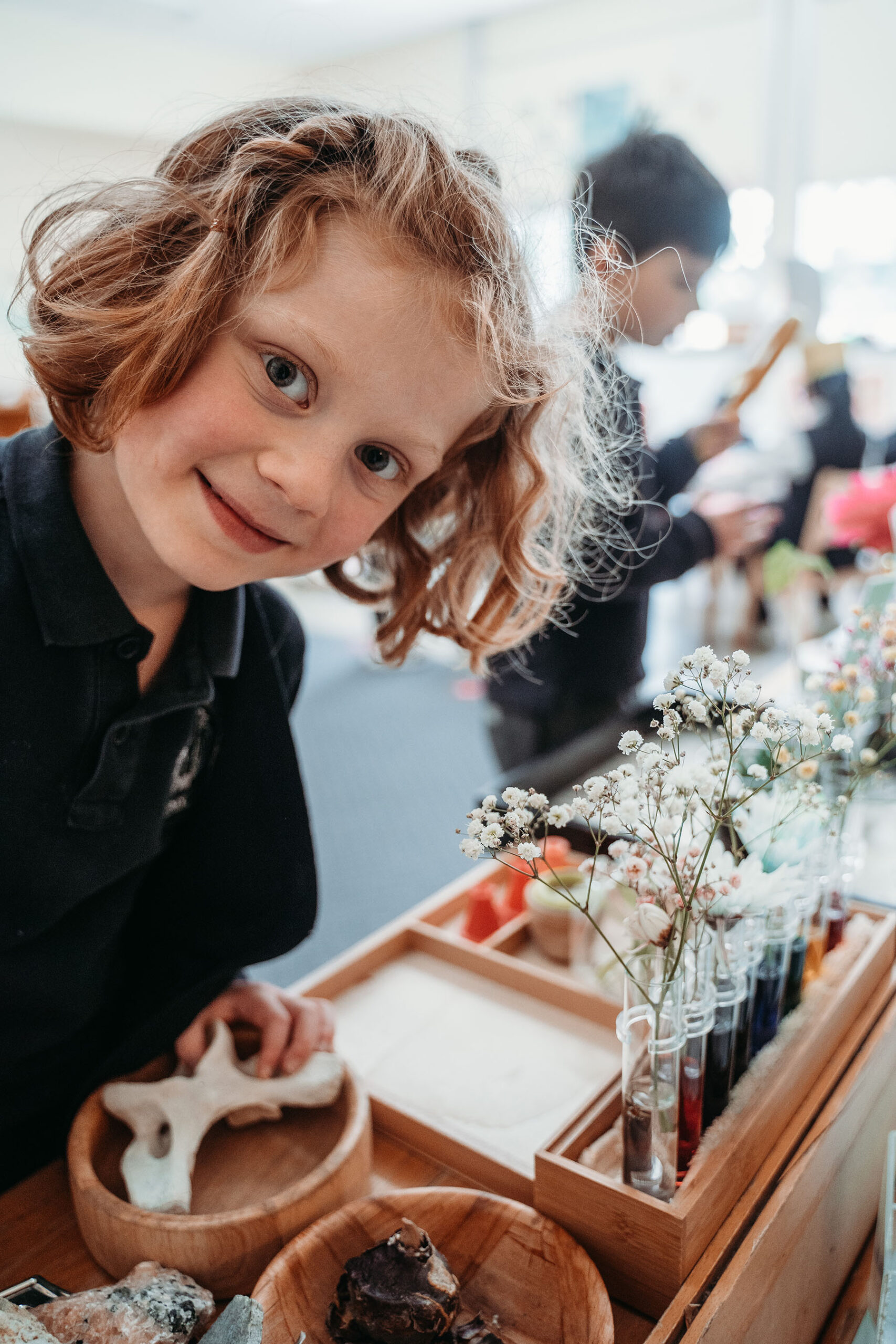Why Choose Montessori?
A common question that families interested in our school ask is “why choose Montessori?” As you embark on what is arguably the biggest decision of your child’s life thus far, we understand it is important that you have a complete understanding of our educational philosophy.
Montessori education moves from the concrete to the abstract. Children interact with concepts and ideas, rather than simply memorizing facts. This hands-on approach fosters deep understanding and critical thinking.
Montessori nurtures a natural love of learning—one that extends far beyond the classroom walls. The principle of following the child honours the child’s capacity to see, enjoy, and discover the world around them. Montessori materials spark curiosity and encourage independent thinking, allowing children to explore new ways of doing things. These materials open the door to discovery without dictating a rigid, step-by-step process.
A well-rounded Montessori education educates the whole child—socially, emotionally, intellectually, and physically. It extends beyond academics, influencing how children interact with others, care for themselves, and contribute to their communities. Children learn grace and courtesy, develop practical life skills, and are empowered to actively participate in their own learning. Montessori prepares children for everyday life, instilling a sense of purpose and confidence.
In a true Montessori environment, external rewards are replaced with intrinsic motivation. Children learn to make decisions based on what feels right internally—not just to please others or receive a prize. The joy of learning comes from within, as children discover something new or realize they’ve mastered a skill.
Montessori recognizes the individual potential of each child, rather than viewing them as empty vessels to be filled with information. A Montessori classroom acknowledges that children develop at their own pace—it’s not expected that all students progress through the material in the same way or at the same time. In this environment, students don’t have to wait for others to catch up, nor are they overwhelmed by being pushed ahead too soon. Each child is met where they are.
These are just a few of the many reasons families choose a Montessori education. We would be happy to share more and answer your questions during an open house.

Montessori Benefits
Montessori education offers our children opportunities to develop their potential as they step out into the world as engaged, competent, responsible, and respectful citizens with an understanding and appreciation that learning is for life.
Space for Uniqueness
- Each child is valued as a unique individual. Montessori education recognizes that children learn in different ways, and accommodates all learning styles. Students are also free to learn at their own pace, each advancing through the curriculum as he is ready, guided by the teacher and an individualized learning plan.
Growth in Self-Regulation
- Beginning at an early age, Montessori students develop order, coordination, concentration, and independence. Classroom design, materials, and daily routines support the individual’s emerging “self-regulation” (ability to educate one’s self, and to think about what one is learning), toddlers through adolescents.
Close Community
- Students are part of a close, caring community. The multi-age classroom—typically spanning 3 years—re-creates a family structure. Older students enjoy stature as mentors and role models; younger children feel supported and gain confidence about the challenges ahead. Teachers model respect, loving kindness, and a belief in peaceful conflict resolution.
Freedom within Limits
- Montessori students enjoy freedom within limits. Working within parameters set by their teachers, students are active participants in deciding what their focus of learning will be. Montessorians understand that internal satisfaction drives the child’s curiosity and interest and results in joyous learning that is sustainable over a lifetime.
A Passion for Learning
- Students are supported in becoming active seekers of knowledge. Teachers provide environments where students have the freedom and the tools to pursue answers to their own questions.
Greater Self-Assessment
- Self-correction and self-assessment are an integral part of the Montessori classroom approach. As they mature, students learn to look critically at their work, and become adept at recognizing, correcting, and learning from their errors.
Given the freedom and support to question, to probe deeply, and to make connections, Montessori students become confident, enthusiastic, self-directed learners. They are able to think critically, work collaboratively, and act boldly—a skill set for the 21st century.

